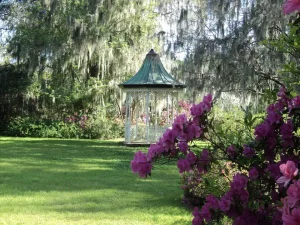Everyone loves to have a pest-free lawn.

Many homeowners yearn to achieve that picturesque turf area that we often see in movies. But because of the hard to get rid of pests, it felt like it was almost impossible.
Sooner or later you’re going to have to face and deal with bugs no matter what. You can’t expect to have a weed and pest-free lawn without doing something about it do you?
It can get especially challenging mostly, if you don’t quite possess the experience necessary for dealing with pests. Particularly during spraying of pesticides, You might end up causing damage to your yard or do over spraying.
Don’t worry though, we’ll give you some advice on proper and effective pesticide spraying to ensure that only the pests are exterminated and not cause damage to your beloved lawn grass and backyard Garden.
Pesticides defined
Obviously to deal with pests in the best possible way is to use pesticides. But what are pesticides exactly? Let’s define it shall we?
Pesticide is defined as any material or substance used to kill, exterminate, prevent, suppress, or repel pests. Broadly defined it is a term that includes insecticides, herbicides, germicides, rodenticides, etcetera.
Things to consider before you rain down that pesticide on your lawn
Halt! Before you pull that trigger on that pesticide. You may want to consider a few things before you use the pesticide.
Know first whether organisms on your garden are beneficial or harmful
Some organisms that live in your lawn are beneficial and help protect your lawn against invading organisms. You may want to do a bit of research regarding the organisms that you spot in your lawn and see whether they help or cause harm to your lawn.
Are pests the reason for your lawn-problem?
Take a good long look at your lawn. Take a deep breath and think about it. Are pests the one causing you all this trouble? Or is it due to other factors such as improper irrigation, toxicity, poor drainage, soil pH quality, lack of nutrients or even negligence can cause problems in your lawn. Maybe by knowing some key issues you can eradicate or lessen the impact of pests to your yard.
The number of pests present and justification of pesticide use
A few pests on a plant might not pose a problem that would require you to use pesticide action, especially if their natural enemies are around to control its population.
However, a considerable number of pests can cause severe or damage which may mean you would want to control the pest. Be sure to base decisions on the presence of pests—not damage levels—and your knowledge of the pest’s life cycle.
Come up with contingency plans such as prevention to change the conditions which have caused the pest to become a problem?
Prevention is the best approach to manage any pest problem. Each pest organism has its environmental conditions for causing damage. By ensuring to provide plants with a sunny location, or opening up canopies to provide air circulation, and avoiding excessive fertilizing will keep the disease from becoming serious.
Therefore, by doing preventive measures you can lessen the damages caused by pest organisms to your lawn.
Decision to use pesticide for pest control
With those things in mind and after some careful consideration you have decided to make use of pesticides to ensure pest control. Be sure to use these chemicals only when necessary. Make sure to only use it on specifically preferred targets as it can cause harm to other organisms in its proximity. Just remember not all pests can be eliminated even with pesticides.
When buying pesticides
Make sure that the particular plant you wish to treat it with is included on the pesticide label.
Otherwise, you might cause unnecessary damage to that plant.
Never use pesticides labeled for use on ornamental plants or plants that will be eaten as vegetables.
Never use pesticides that are specifically designed for outdoor usage inside the house.
Pesticides can seriously damage some plants; read the label to be sure treated plants won’t be injured.
When using pesticides
Before spraying , make extra precautions of clearing the vicinity of any people, pets, and/or any items. The ideal time to spray pesticides is during the morning or late evenings after dinner. If a gust comes up while you’re spraying, stop momentarily and come back to finish the spraying later to prevent other areas from being affected by the drifting of the pesticide
Never forget to read and strictly follow label instructions.
Apply pesticides only on the target areas. Don’t be a wise guy and think it’ll all work if you missed an instruction or two.
Don’t apply near driveways, sidewalks, or other hard surfaces where water runoff occurs.
Hire a Pest Control Company if it gets overwhelming
This is your first time handling this kind of situation and it feels as if the walls are closing around you. Then maybe it’s time you call in the cavalry for this one.
If the job becomes too overwhelming for you, or if you don’t have the time, energy nor experience to address your pest problems you may want to contact a pest control service team to aid you in this. Doing so relieves you of having to stress yourself out, and worry of having to mess around.
Are you having problems with your garden or Need a hand with your lawn? Do you want to upgrade the look of your current home landscape and are too busy to do it yourself? Great Canadian Landscape Inc. will do all these for you. Sit back and relax while we do the landscaping for you ensuring you come home with a wonderful landscape to impress your neighbors and relatives.

